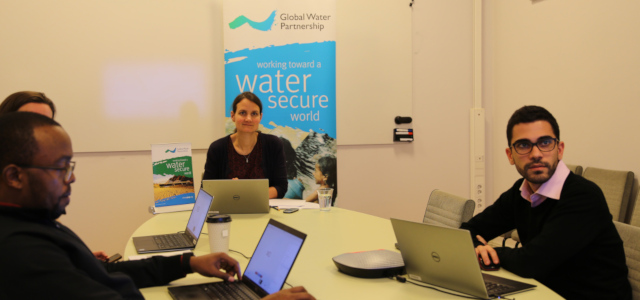While some research has been carried out on the topic, an audience poll during a Stockholm World Water Week 2019 session showed that the knowledge on linkages between water security and migration from rural areas is still very limited. To address this gap, GWP and Partners under the framework of the water and migration working group of WASAG (Global Framework for Water Scarcity in Agriculture) and the MARIS network (Migration, Agriculture and Resilience: Initiative for Sustainability) delivered a webinar on the topic “Water, Migration and Rural Development: What Do We Know?”
Presenting research evidence, Patricia Mejias of the Food and Agriculture Organization of the United Nations (FAO) highlighted that conflicts, climate related disasters and rural development gaps are the main drivers behind migration, and water is strongly connected to all these: “80% of the world’s poor people live in rural areas, and they depend on agriculture and natural resources for their livelihoods and for food security. We need to acknowledge that water is strongly related to the main drivers, and therefore water resources management needs to be integrated in the migration debate.”
Alan Nicol from IWMI presented research from Ethiopia and Nepal/India, on how several factors contribute to why people migrate: “Migration is complex and layered, and it demands multi-level governance.”
Dr. Nidhi Nagabhatla of the United Nations University Institute for Water, Environment and Health (UNU-INWEH) drew attention to the 2018 UN World Water Development Report (WWDR), which comments on how water crisis projections could impact half of the global GDP by 2050, and the WWDR 2019, which calls for inclusive and integrated solutions while implementing SDG 6: "Both narratives and solutions need to be deliberated simultaneously" said Dr. Nagabhatla.
Watch the recording of the webinar:
Top photo: The webinar was hosted by GWP in Stockholm, Sweden, with Julienne Roux as one of the two moderators - Liza Debevec of IWMI (not pictured) was the other one.

